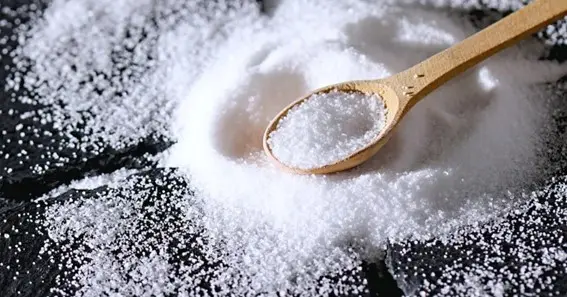Pickling salt, a staple in the world of preserving adds a dash of precision to culinary endeavours. In this comprehensive guide, we delve into the nuances of pickling salt, exploring its uses, differences from other salts, and the secrets it holds for those keen on mastering the art of pickling.
What Is Pickling Salt?
Pickling salt, a key player in the world of preserving, is a finely ground salt with no additives, specifically designed for pickling and canning. Its purity ensures a crystal-clear brine and a successful pickling process.
Also Read N: Why Should Digital Nomads Choose The Smokies as Their Next Work-Stop?
What Is The Difference Between Pickling Salt And Regular Salt?
The distinction lies in the purity and additives. Pickling salt is devoid of additives like iodine or anti-caking agents present in regular table salt, ensuring a pristine pickling process without undesirable side effects.
Also Read P: Exploring the Maze: Expert Guidance for Immigration System Complexities
What Is The Difference Between Kosher Salt And Pickling Salt?
While both are additive-free, kosher salt has larger, irregularly shaped crystals, adding a textural element when used for pickling. Pickling salt, being finely ground, dissolves easily, making it ideal for creating a clear brine.
What Is The Difference Between Pickling Salt And Kosher Salt?
The primary difference lies in texture and size. Pickling salt’s fine grains dissolve quickly, while kosher salt, with its larger crystals, offers a satisfying crunch. The choice depends on the desired outcome and personal preference.
What Is The Difference Between Salt And Pickling Salt?
Regular table salt may contain additives that can darken the brine, affecting the visual appeal of pickled products. Pickling salt’s purity ensures clarity, making it the preferred choice for preserving the vibrant colours of fruits and vegetables.
What Is Pickling Salt Good For?
Pickling salt is adept at drawing out moisture from vegetables, ensuring a crisp texture. Its fine grain dissolves readily, contributing to the creation of clear brines that enhance the visual appeal of pickled produce.
What Is Pickling Salt Used For?
The uses of pickling salt extend beyond pickles. It is an excellent choice for brining meats, preparing sauerkraut, or any recipe where a clear brine and quick dissolvability are crucial.
Where To Buy Pickling Salt: Seeking Culinary Clarity
Pickling salt is readily available in grocery stores, often found alongside other salts or in the canning section. It can also be purchased online, providing convenience for those embarking on their pickling adventures.
What Is Pickling Salt Substitute: Exploring Alternatives
In a pinch, kosher salt can serve as a pickling salt substitute, though the visual clarity of the brine may be compromised. Regular table salt is a less desirable alternative due to potential additives affecting the brine’s appearance.
What Is Pickling Salt Made Of Crafting Culinary Purity
Pickling salt is made of pure sodium chloride, devoid of additives commonly found in other salts. Its simplicity ensures that it serves its primary purpose – preserving the natural colours and flavours of pickled foods.
To Get To Know About Latest Blogs At citiesz.com.
What Is Pickling Salt For Canning Salt?
Pickling salt and canning salt are often used interchangeably. The purity of pickling salt makes it an ideal candidate for canning, ensuring that the clarity and taste of preserved foods remain uncompromised.
How To Make Canning Salt: Diy Precision
Crafting canning salt at home involves grinding pure salt crystals into a finer consistency. While pickling salt is readily available, the DIY approach allows for customization based on personal preferences.
Pickling Salt Near Me: Convenience At Your Fingertips
For those seeking pickling salt locally, a quick search for “pickling salt near me” can direct you to grocery stores, culinary supply shops, or even farmers’ markets where this essential ingredient awaits your culinary exploits.
Conclusion
In conclusion, pickling salt stands as an unsung hero in the world of preserving, contributing not only to the crisp texture of pickled delights but also to the visual allure of the final product. Its simplicity, purity, and ability to dissolve quickly make it a prized companion for those embarking on culinary journeys into the art of pickling. As you explore the realm of preserving, let pickling salt be your trusty guide, enhancing the flavours and aesthetics of your homemade pickled creations.
FAQ
What Is A Substitute For Pickling Salt?
If you don’t have pickling salt, you can use kosher salt instead. Just make sure it’s pure. Check the label to be sure it doesn’t have any stuff in it that can make the pickling liquid look cloudy. That way, your pickling should turn out just fine.
What Is The Difference Between Salt And Pickling Salt?
Pickling salt, also called canning salt or preserving salt, is just plain salt with nothing extra added. Unlike table salt, it doesn’t have any anti-caking stuff or additives. Those extra things can make pickle juice look cloudy or dark, so pickling salt doesn’t have them.
Can I Use Himalayan Salt Instead Of Pickling Salt?
Should I keep using pickling and canning salt? No, it’s not a good idea to use Himalayan pink salt for canning and pickling. It has minerals in it that might change how well your canned foods turn out, especially pickled ones.
Can You Use Sea Salt For Pickling Salt?
You can swap sea salt for canning salt because it’s pure without any extra stuff added. There’s fine sea salt and chunkier sea salt you can buy. Here’s an easy way to switch: If a recipe calls for 1 teaspoon of canning salt, just use 1 teaspoon of fine sea salt instead. And if it asks for 1/2 cup of canning salt, use 1/2 cup plus 2 teaspoons of fine sea salt.










